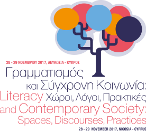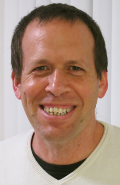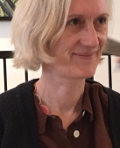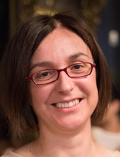| Sitemap | Disclaimer | Contact |
- ΠΑ.ΒΙ.Σ.
- CERE
- CDU
-
Educational Technology Department
- Homepage
-
Research Programmes
- Πρόγραμμα Επιμόρφωσης Εκπαιδευτικών για την Ανάπτυξη Ψηφιακής Ικανότητας (ΠΕΕΑΨΙ)
- Καινοτόμα Σχολεία και Εκπαιδευτικοί Πυρήνες
- Ασφαλές Σχολείο για το Διαδίκτυο
- Ψηφιακοί Πρωτοπόροι
- Μαθητικό Διαδικτυακό Ραδιόφωνο
- Καταγράφουμε τη Μνήμη - Παραγωγή Nτοκιμαντέρ από Μαθητές και Μαθήτριες
- Μικροί Εκπαιδευτές για το Διαδίκτυο
- Competitions
- Πλαίσια Ψηφιακών Ικανοτήτων
- Conferences
- Audiovisual Material
- Technical Support
- On-line Libraries
- Educational Documentation Department
-
In-service Training Department
- Homepage
-
Programmes – Seminars
- Πρόγραμμα Υποστήριξης Επαγγελματικής Μάθησης Παιδαγωγικού Ινστιτούτου
- School-based Seminars
- Πρόγραμμα Επαγγελματικής Μάθησης «Ενδυναμώνοντας τις μελλοντικές γενιές στην Κύπρο»
- Πρόγραμμα αντιρατσιστικής πολιτικής
- Seminars for Parents
- Optional In-service Training Seminars
- Seminar on the Teaching of Physics
- Αγωγή Υγείας
- In-service Training Programme for School Leaders
- Training Programme for Greek origin Teachers from abroad
- Πρόγραμμα Επιμόρφωσης Ομογενών Εκπαιδευτικών Αμερικής
- Training Programme for Candidate Technology Teachers
- Εκπαιδευτική Ένταξη Παιδιών με Μεταναστευτική Βιογραφία
- Οι εκπαιδευτικοί μιλούν για το έργο τους
- Επιμορφωτικό πρόγραμμα για αντικαταστάτες εκπαιδευτικούς
- Διήμερο Επιμόρφωσης Εκπαιδευτικών Προσχολικής, Δημοτικής και Ειδικής Εκπαίδευσης
- Επιχειρηματικότητα στην Εκπαίδευση
- Δίκτυο Σχολείων Υποστήριξης της Φιλαναγνωσίας
- Δέκαθλο Φυσικών Επιστημών
- Archive for the In-service Training Programmes
- Conferences – Workshops
- Educational Material
- Training Material
- Ισότητα των Φύλων στην Εκπαίδευση
- Ενεργός Πολιτότητα
- Contacts
 Workshops
Workshops
Literacy and Contemporary Society - Key Notes Speakers
| Home | Submission Forms | Guidelines for Abstracts | Conference Committees | Programme |
| Key Notes Speakers | Dates | Abstracts - Proceedings | Useful Information | Announcements - Circulars |

Communication
Email for Abstracts
 This e-mail address is being protected from spambots. You need JavaScript enabled to view it
This e-mail address is being protected from spambots. You need JavaScript enabled to view it
Spyros Sofokleous
 +357 22402485
+357 22402485
 This e-mail address is being protected from spambots. You need JavaScript enabled to view it
This e-mail address is being protected from spambots. You need JavaScript enabled to view it

1st International Conference: Literacy and Contemporary Society (October 2015)

Adam Lefstein,
Professor,
Ben-Gurion
University of
the Negev
(CV)
Teacher learning on the job: towards pedagogical productive talk
Studies show that, on average, teachers' effectiveness as measured on student outcomes peaks after three to five years, plateauing thereafter. This startling statistic suggests that we need to radically rethink our professional development systems. In this talk I argue that we have been looking for teacher learning in the wrong places, and that we should shift our focus – from formal learning activities in professional development workshop to informal processes of learning on the job. Such processes are closely related to the ways in which we talk to one another about teaching, students, learning and curriculum. I will share data from my own and others' research about teacher collaborative discourse; advance a model of pedagogically productive talk, which has the power to advance teacher learning; and discuss the challenges of facilitating such talk in schools.

Kate Pahl,
Professor,
The University
of Sheffield
(CV)
Re-thinking literacy ontologies with young people in communities
Now, more than ever, young people require spaces where their voices are heard and their views acted upon. In the UK, more young people voted to remain than leave the EU. Many young people feel distant from government and do not tend to engage with participatory practices constructed by adults. The literacies of civic engagement often rely on ‘old’ literacy practices; that is written texts and formal meetings. Ways of engaging young people in community governance structures are often limited and do not allow for more complex forms of expression.
In this talk I explore the literacies of activism. I describe the potential of artistic methodologies in order to co-produce projects with young people, with a particular focus on social cohesion in neighbourhoods and schools. Drawing on recent projects in which young people wrote poetry, made films and created photographic accounts of the places they live in, I will argue that artistic methods open up new modes of engagement, and new understandings of literacy, that are lived, tacit, embodied and materially situated. They are also means to create safe spaces for emergent things to happen that are potentially transformative (Hill and Vasudevan, 2008).
I then consider the implications of this kind of work for literacy research. This work challenges researchers to re-think literacy through a lens that might lie beyond representational practice into the ineffable and unknown. I ask the question, what would it be to think differently about civic engagement drawing on the literacy ontologies of young people? Drawing on an approach from socially engaged arts practice (Kester, 2004), the new materialism (Bennett, 2010) and ‘lived theory’ (Gordon, 2014) I consider the potential for a more open ontological framework to open up creative spaces for young people to re-think the literacies of activism with a focus on civic participation and engagement practices.

Vally Lytra,
Senior Lecturer,
Goldsmiths,
University of London
(CV)
The multilingual turn in language and education: Lessons from homes and communities
In recent years, there has been a conceptual shift from an understanding of languages as discrete and bounded entities to languages as social and ideological constructs and from a focus on code to a focus on language users, their multilingual repertoires and biographical trajectories situated in local and global contexts (e.g. Blackledge & Creese 2010; Heller 2007; Makoni & Pennycook 2007; Martin-Jones, Blackeledge & Creese 2012).
Methodologically, it has led to the development of different strands of ethnographic and critical approaches to researching multilingualism, including the development of multi-sited collaborative team ethnographies (Martin-Jones & Martin 2017; Gardner & Martin-Jones 2012).
How might these epistemological and methodological lenses help shape educators' understandings of and stances towards students' languages, literacies and identities? What lessons from students' language and literacy learning experiences from homes and communities might educators draw upon to support and value culturally-sustaining, multilingual pedagogies for all young people?
I consider these questions through illustrative examples from two team ethnographies. The first one examined language practices and pedagogies in complementary (community) schools in the UK (Creese et al 2007) and the second one investigated faith literacies in homes, places of worship and religious education classes in London (Gregory et al 2009). Both team ethnographies started from a strengths perspective to young people's multilingual/multisemiotic resources, highlighting the complexity of their trajectories, repertoires and identities while attending to the broader social, cultural and institutional processes involved in meaning-making and identity negotiations (Lytra et al 2016).
© 2010-2025 Cyprus Pedagogical Institute
Educational Technology Department
Privacy policy

